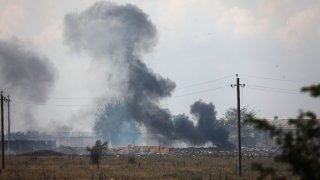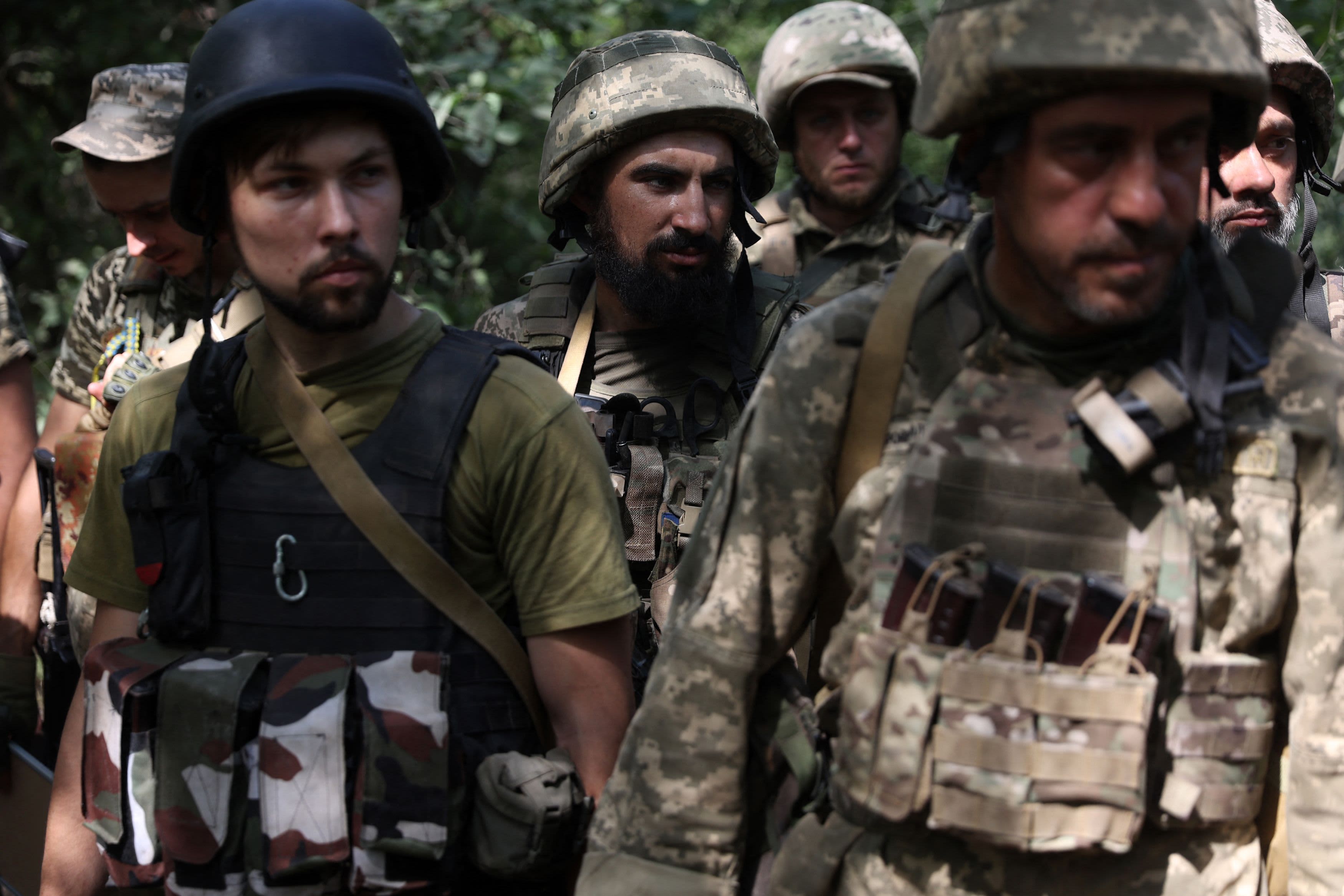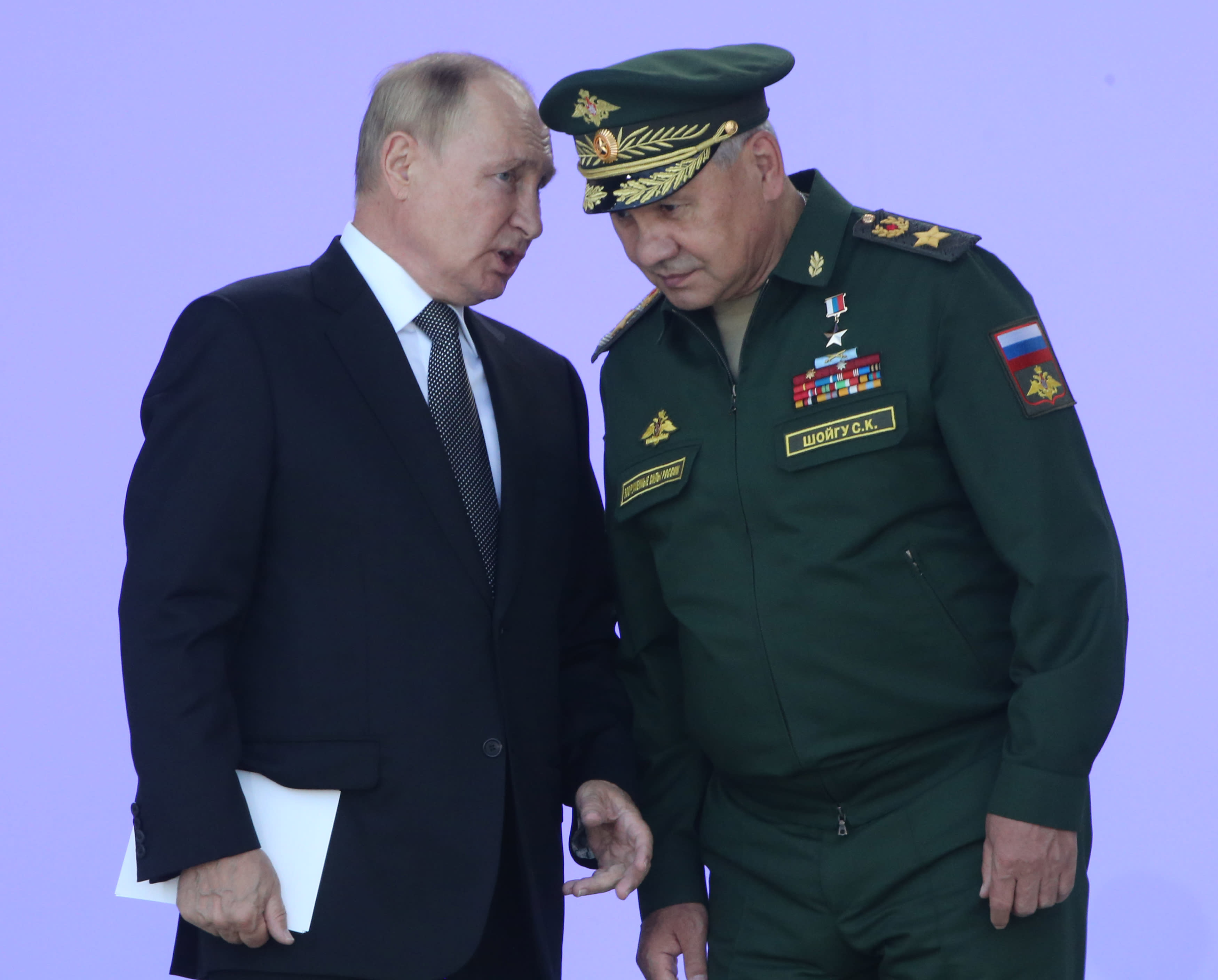
A spate of explosions and fires has turned Russian-occupied Crimea from a secure rear base into a new battleground in the war, demonstrating both the Russians' vulnerability and the Ukrainians' capacity to strike deep behind enemy lines.
Nine Russian warplanes were reported destroyed at an air base in Crimea last week, and an ammunition depot on the peninsula blew up on Tuesday.
Ukrainian authorities have stopped short of publicly claiming responsibility, preferring to keep the world guessing, but President Volodymyr Zelenskyy alluded to Ukrainian attacks behind enemy lines after the latest blasts, which Russia blamed on “sabotage.”
Russia seized the Crimean Peninsula from Ukraine in 2014 and has used it as a staging ground for attacks on the country in the war that began Feb. 24. Ukrainian authorities have vowed to recapture Crimea and other occupied territories.
Feeling out of the loop? We'll catch you up on the Chicago news you need to know. Sign up for the weekly Chicago Catch-Up newsletter here.
“The invaders will die like dew in the sun,” Zelenskyy, in his nightly video address Wednesday, said of the effort to retake Crimea and other areas.
Russia-Ukraine War Coverage:
The explosions represent the latest setback for Moscow, which began its invasion with hopes of taking Kyiv in a lightning offensive but soon became bogged down in the face of fierce resistance. As the war nears the six-month mark, the two sides are engaged in a grinding war of attrition, fighting village to village, largely in the country's east.
The attacks in Crimea may mark the opening of a new front that would represent a significant escalation in the war and could further stretch Russia's resources.
“Russian commanders will highly likely be increasingly concerned with the apparent deterioration in security across Crimea, which functions as rear base area for the occupation," Britain's Defense Ministry wrote on Twitter.
As a result of the airfield attacks, Russia is moving dozens of warplanes and helicopters to deeper positions in Crimea and to Russian bases elsewhere, Ukrainian military intelligence reported.
Tuesday's explosions ripped through an ammunition site near the town of Dzhankoi, forcing the evacuation of about 3,000 people. Munitions continued to explode Wednesday and authorities fought the fires with a helicopter, said Crimea's regional leader, Sergei Aksyonov. He said a search for the perpetrators was underway.
The Kommersant business paper also reported explosions Tuesday at a Crimean base in Gvardeyskoye. There was no confirmation from the Russians.
The British intelligence report said Gvardeyskoye and Dzhankoi are home to two of the most important Russian military airfields in Crimea.
Just over a week ago, explosions rocked the Russians' Saki air base on Crimea and destroyed planes on the ground. Moscow suggested that the blasts were accidental, caused perhaps by a careless smoker, but Ukrainian authorities mocked that explanation and hinted at their involvement.
Last month, a small explosive device carried by a makeshift drone blew up in a courtyard at the headquarters of Russia’s Black Sea Fleet in the Crimean port of Sevastopol, wounding six people and prompting the cancellation of ceremonies there honoring Russia’s navy.
In other developments Wednesday, two civilians were reported killed and seven wounded by Russian shelling of several towns and villages in the Donetsk region in the east that is the current focus of the Kremlin offensive.
In the south, Russian warplanes fired cruise missiles at the Odesa region overnight, wounding four people, according to regional administration spokesman Oleh Bratchuk. In Mykolaiv, also in the south, two Russian missiles damaged a university building but injured no one.
Russian forces also shelled Kharkiv and the surrounding region in the northeast, killing at least six people, wounding at least 16 and damaging residential buildings and civilian infrastructure, authorities said.
Meanwhile, U.N. Secretary-General Antonio Guterres arrived in the western Ukrainian city of Lviv for a meeting Thursday with Zelenskyy and Turkish President Recep Tayyip Erdogan.
U.N. spokesman Farhan Haq said Guterres will raise the topic of food and grain shipments, nuclear power plant safety and the recent prison explosion that killed scores of captured Ukrainian fighters, and will “do what he can to essentially lower the temperature as much as possible."
The last time the U.N. chief came to Ukraine, in April, Russia launched a missile strike on Kyiv.



